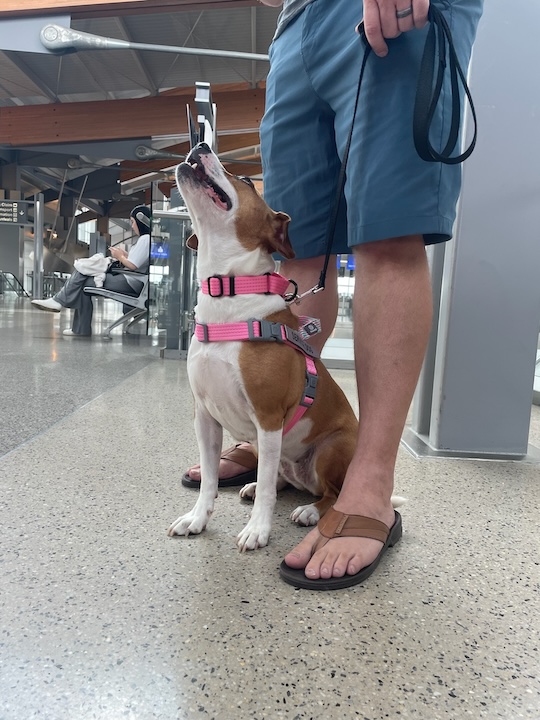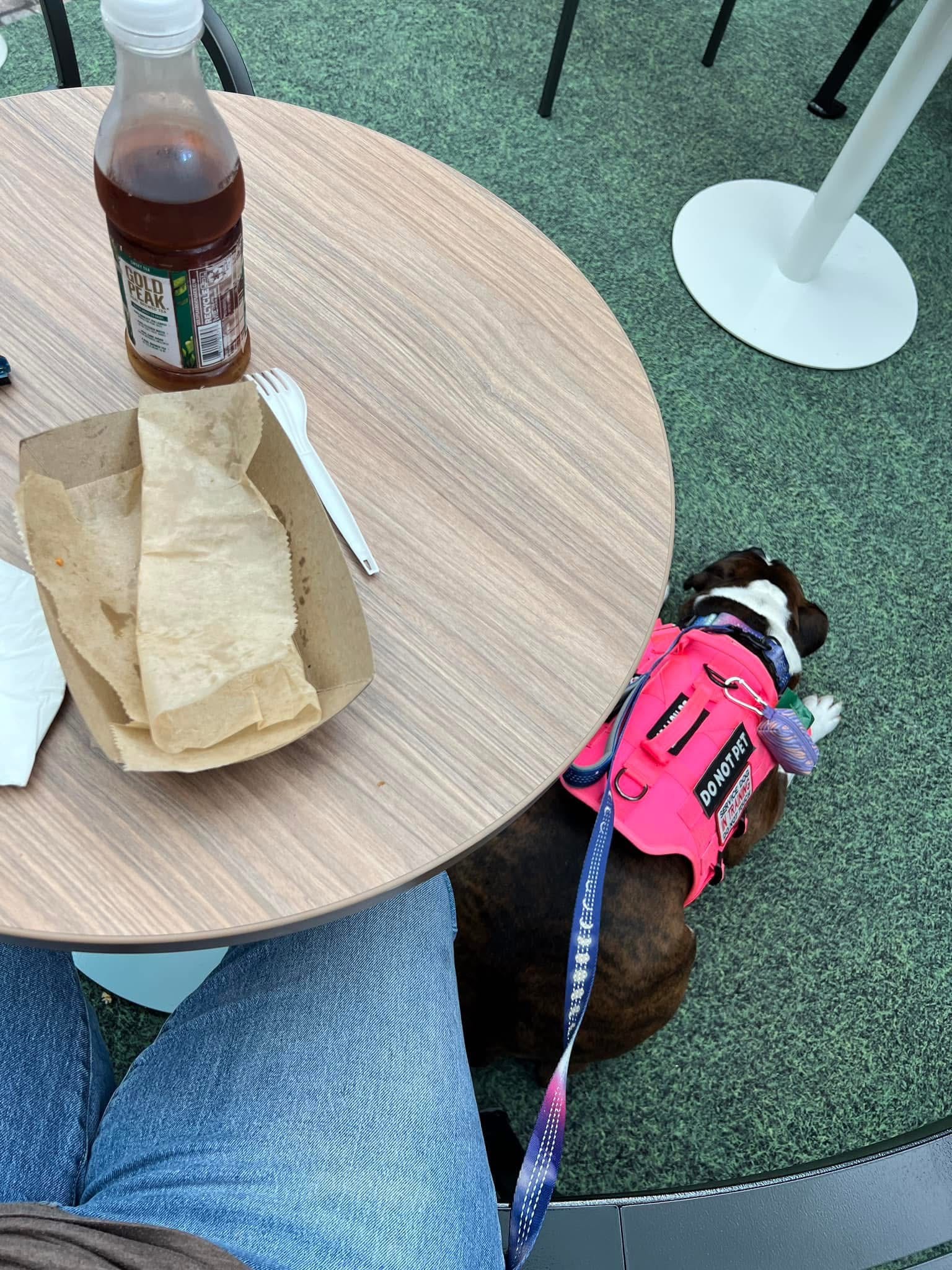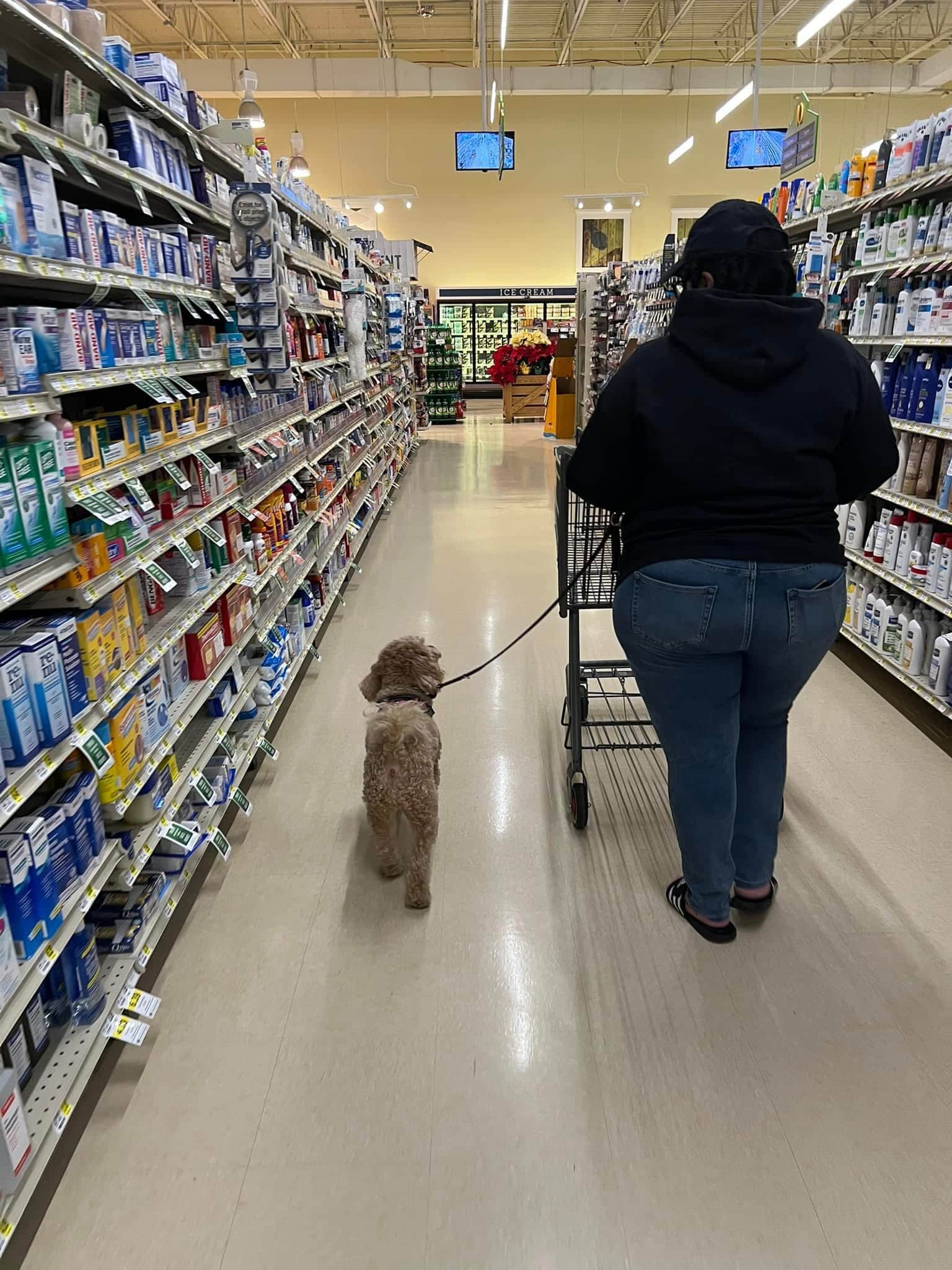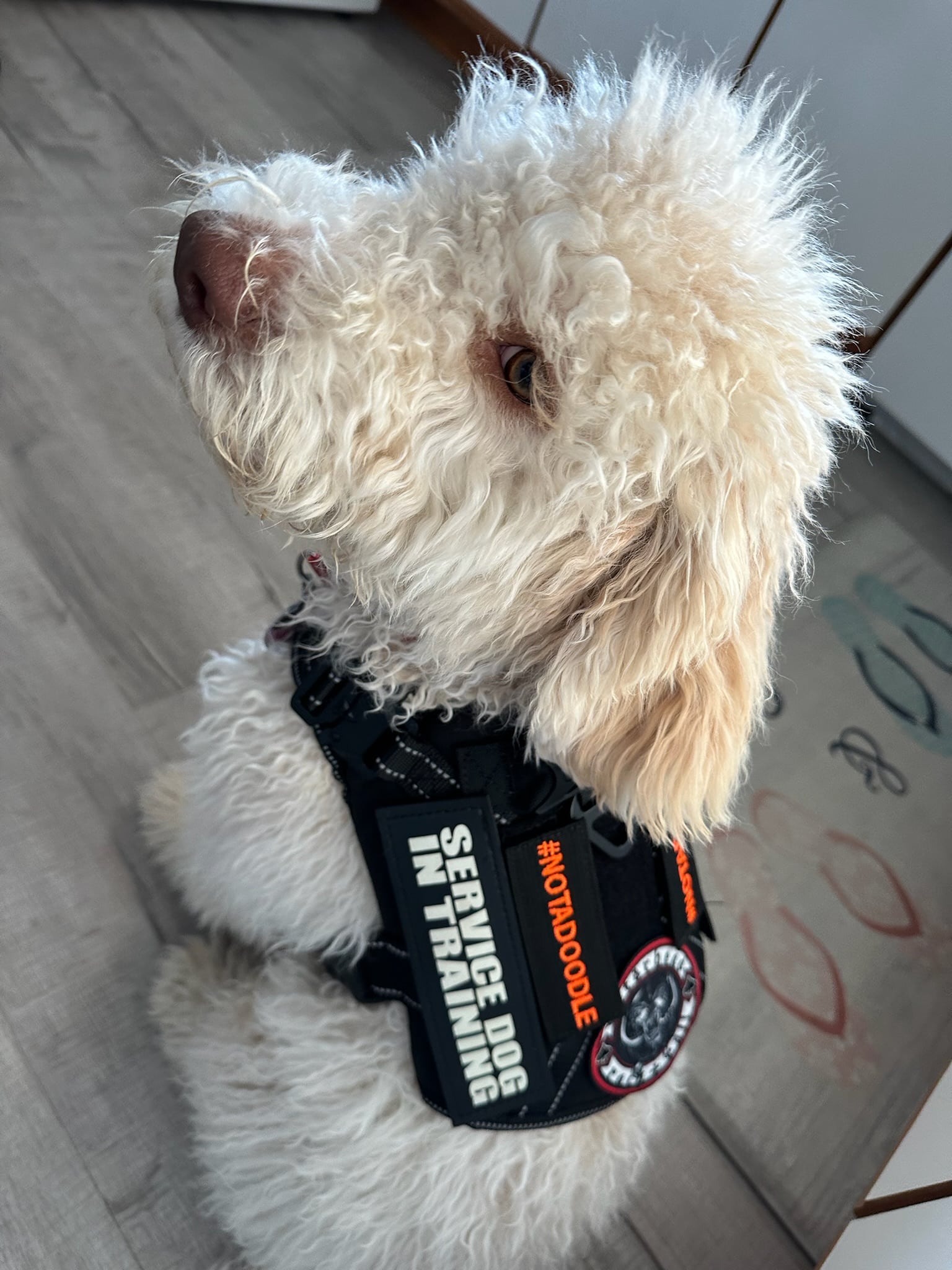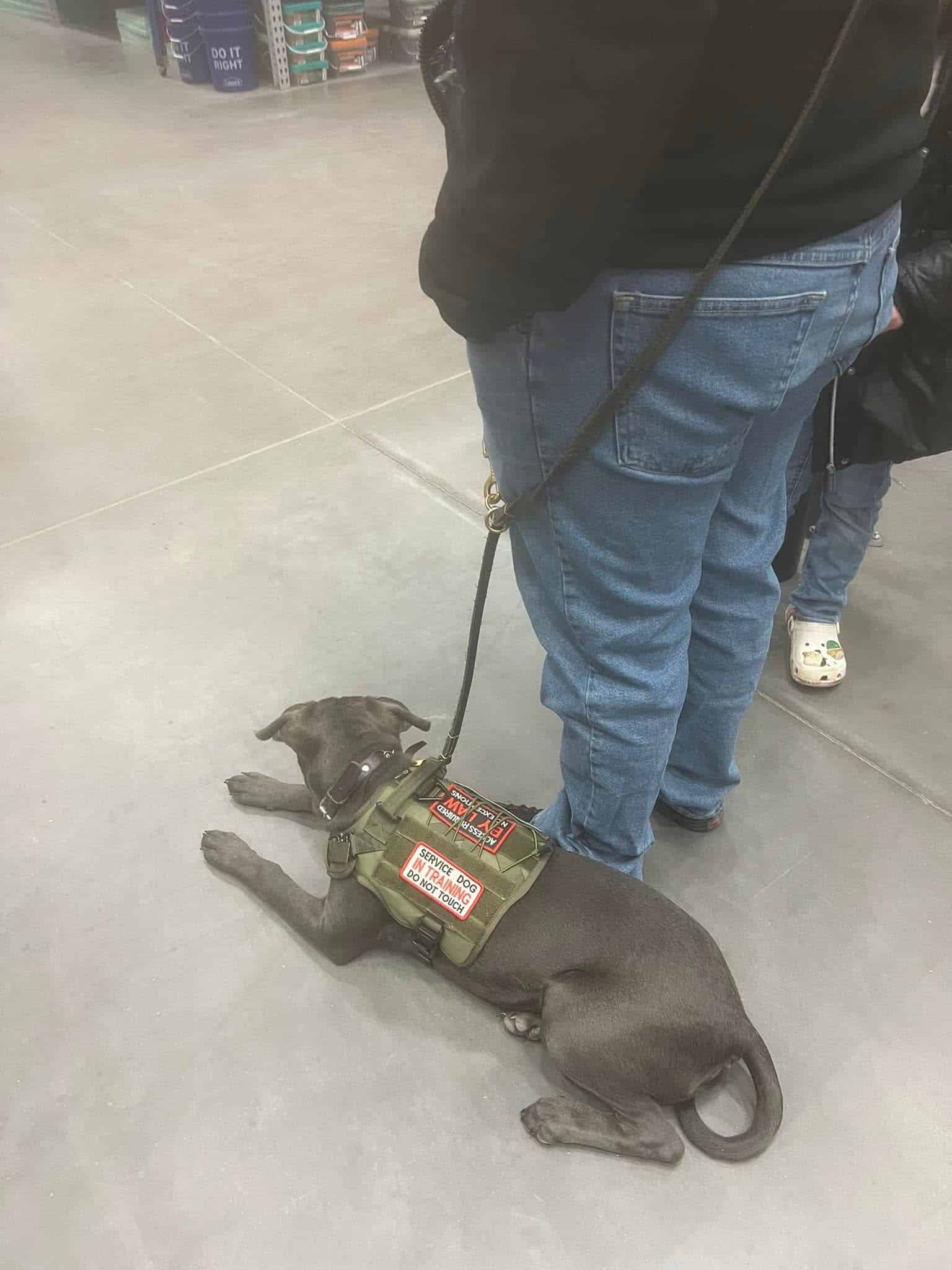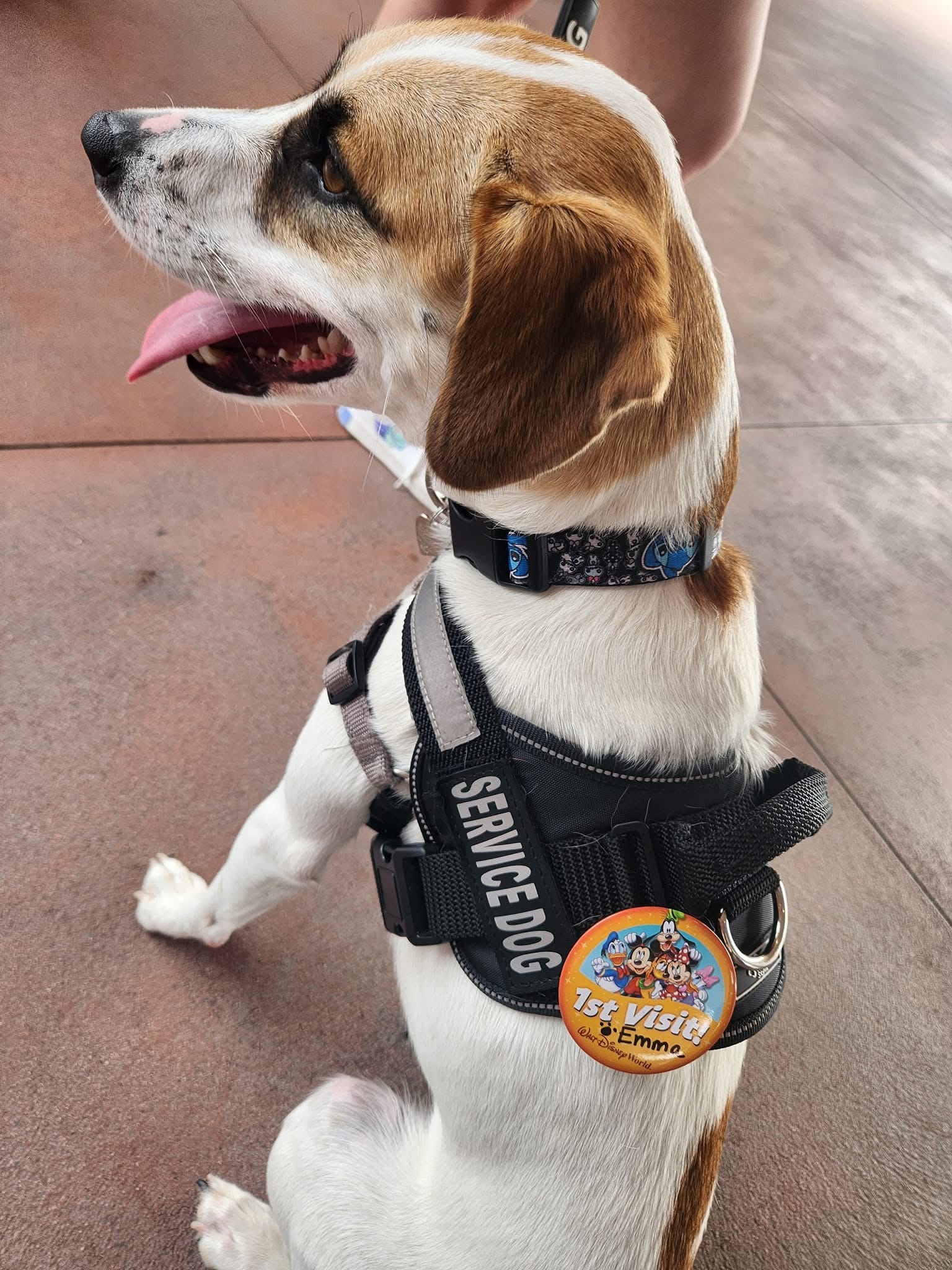Service dog handlers face unique challenges when navigating public spaces, particularly when interacting with businesses and institutions that may not fully understand the rights granted by the Americans with Disabilities Act (ADA). At our professional service dog training company, we specialize in empowering handlers to confidently address these challenges while fostering positive interactions with the public.
Understanding Your ADA Rights
The ADA provides individuals with disabilities the right to be accompanied by their service dogs in most public spaces. However, misunderstandings about the law can create barriers. To help handlers navigate these situations, we emphasize the following:
- The Two Legal Questions: Businesses can only ask:
- Is the animal a service animal required because of a disability?
- What work or task has the animal been trained to perform?
- No Identification Required: Service animals are not required to wear vests, harnesses, or display certification. Their behavior and task performance define them, not paperwork or attire.
- Service Animals in All Public Areas: Businesses must allow service animals in areas where customers are typically permitted, including restaurants, schools, and stores.
Real-Life Challenges and Advocacy
A Stressful School Encounter
One of our clients faced an issue bringing their service dog in training to their child’s school. Despite the ADA not requiring certification for service animals, the school office requested documentation. This misunderstanding caused significant anxiety for the client, who had to calmly de-escalate the situation while advocating for their rights. Thankfully, their service dog—trained for psychiatric support—helped them manage the stress.
Denied Entry at a Café
Another client of ours encountered a café owner who, unaware of ADA guidelines, refused entry, citing a “no pets” policy. After calmly explaining that service animals are not pets and are protected under federal law, this client was allowed entry. This incident underscores the importance of education—not just for handlers, but for businesses too.
Supporting Handlers Through Comprehensive Training
Our service dog training programs go beyond task work and public access skills. We equip handlers with the tools to handle these real-world scenarios:
- Role-Playing: Practicing interactions with businesses to build confidence.
- Educational Materials: Providing guides on ADA compliance for handlers to share with businesses.
- De-escalation Techniques: Teaching calm, professional responses to misunderstandings.
We also provide resources to address common misconceptions, such as the differences between service animals, therapy animals, and emotional support animals. For example, service animals perform specific tasks related to a person’s disability, while emotional support animals provide comfort and are not covered under ADA protections.
Building Advocacy and Awareness
Empowering handlers is only part of the equation. We encourage businesses to educate their staff on ADA guidelines to create inclusive environments. Key points include:
- Service animals are allowed in all public areas, including food service establishments.
- Businesses cannot charge fees or request documentation for service animals.
- Handlers are responsible for controlling their animals, and businesses can ask for removal only if the animal is disruptive or poses a safety risk.
Understanding Service Animal Regulations in North Carolina
Navigating the legal landscape surrounding service animals is crucial for handlers and businesses alike. The North Carolina Department of Health and Human Services (NCDHHS) offers valuable resources to clarify these regulations, ensuring compliance with both state and federal laws.
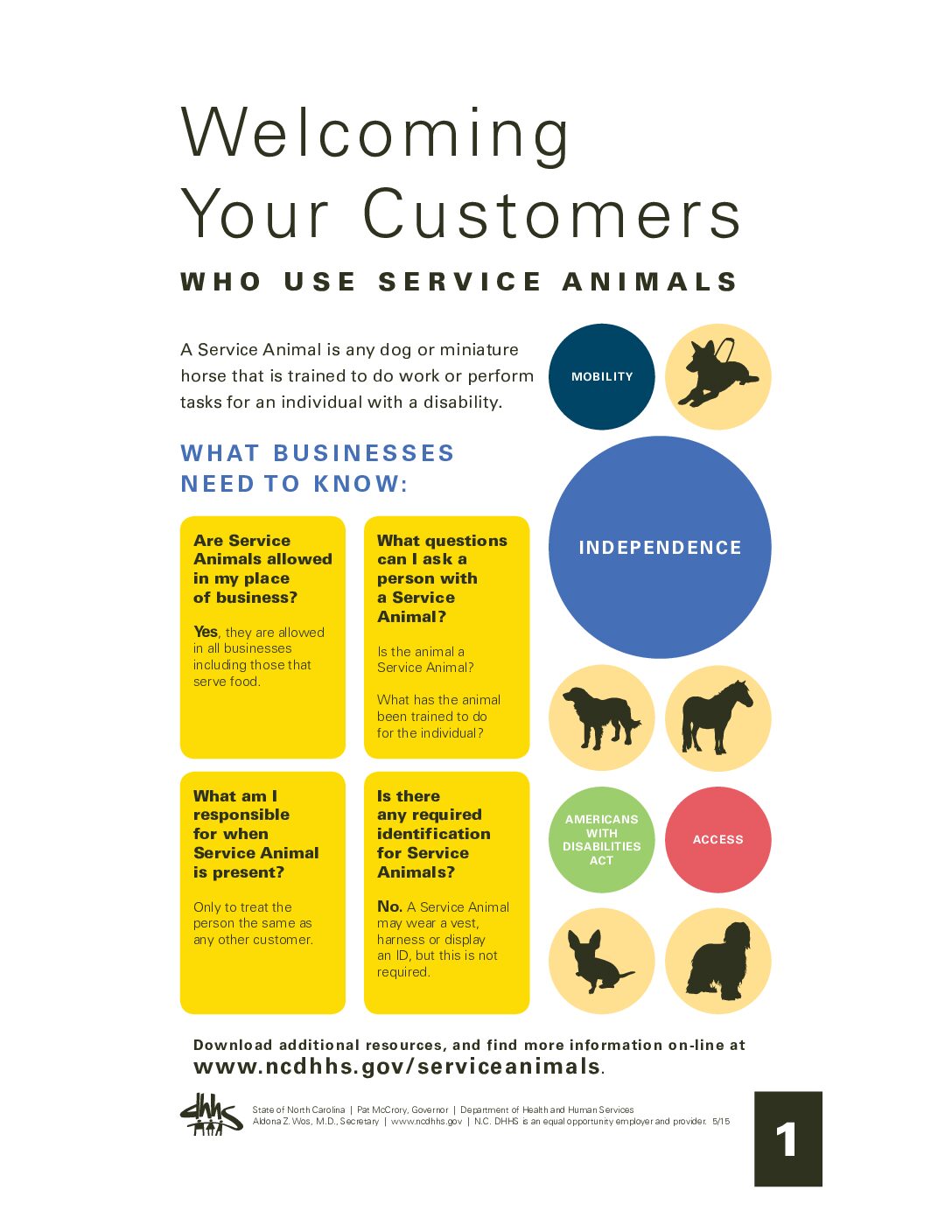
Voluntary Registration in North Carolina
While the ADA does not require service animals to be registered or certified, North Carolina offers a voluntary registration process through NCDHHS. This program allows handlers to register their service animals, which can help in public interactions, though it is not mandatory. The application for voluntary registration can be found on the NCDHHS website.
Your Partner in ADA Compliance and Service Dog Training
Our mission is to not only train reliable service dogs but also to support handlers in becoming confident advocates. Whether you’re starting your service dog journey or seeking guidance on ADA compliance, we’re here to help.
Contact us today to learn more about our service dog training program and how we can support you every step of the way.
Contact Us
Dog Training | Puppy Training | Obedience Training
Whether you are seeking a dog trainer, needing a simple dog training tip, or researching various dog training techniques, Sally Said So Professional Dog Training can meet your needs. We have a team of dog trainers across North Carolina ready to come help you in their convenience of your home. We have an active blog geared towards dog training knowledge and tips that you actually want. We offer the leading dog training techniques in our industry – combining the power of positive reinforcement with top notch behavior modification. Our training services are extensive – offering private dog training sessions, group classes, and refresher sessions so you can rest assured knowing that your dog will be covered for life.
Need something more advanced? We offer service dog training and therapy dog training services.
Want your dog to earn its Canine Good Citizen Award? We can do that, too!

